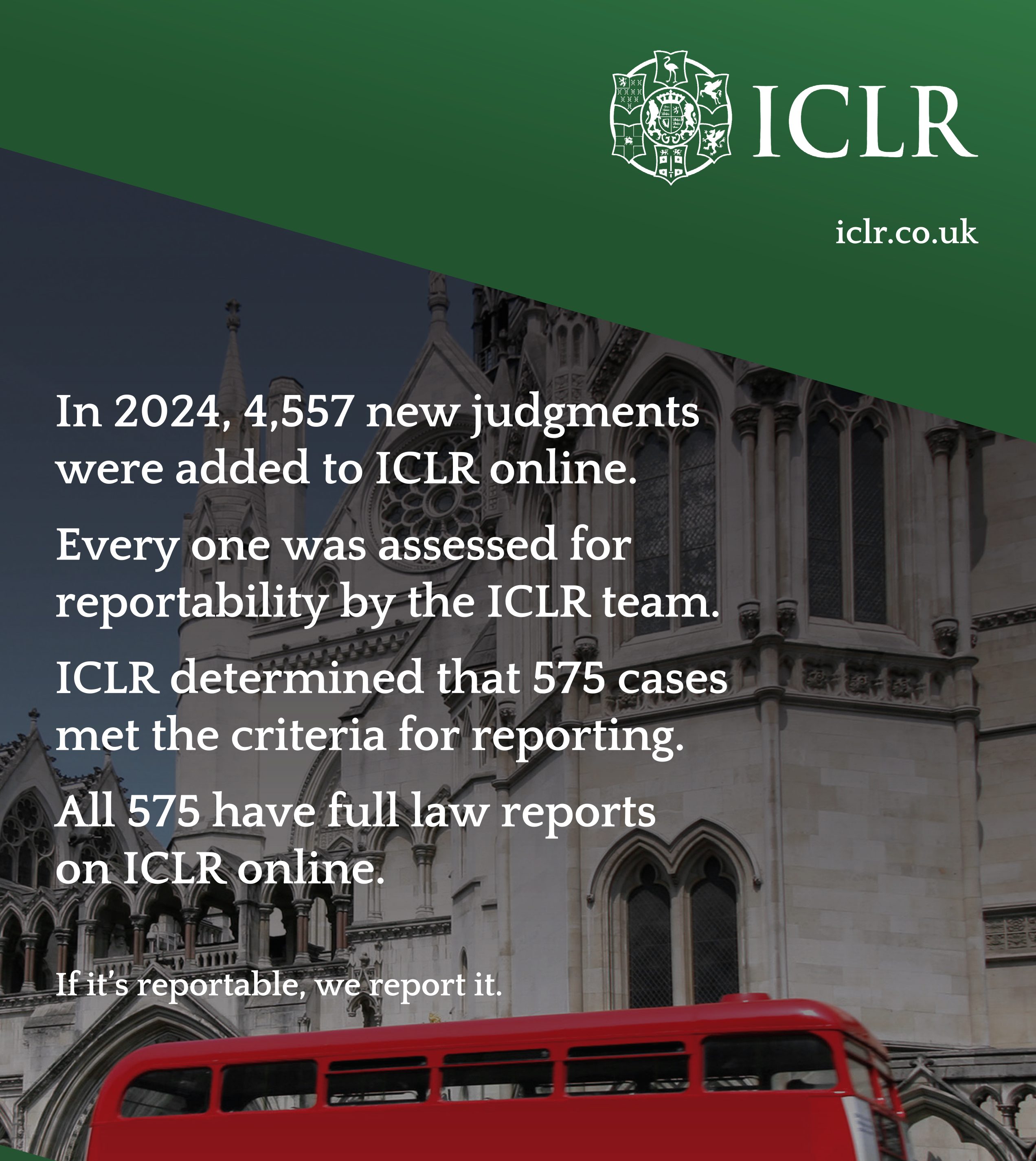
ICLR
If it's reportable, we report it.
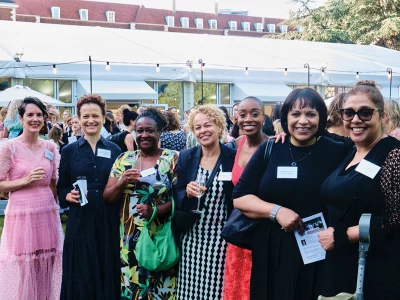
The Inner Temple Co-Convenor of the Inns of Court Alliance for Women opened the annual cross-profession garden party on 23 June 2025. Her words set the scene for an inspiring and thought-provoking speech by Supreme Court Justice, The Rt Hon Lady Simler DBE.
Good evening, everyone. I am The Inner Temple Co-Convenor of the Inns of Court Alliance for Women (ICAW), along with my fellow Co-Convenors, Brie Stevens-Hoare KC representing Lincoln’s Inn, Mrs Justice Lieven representing Gray’s Inn and Ruth Kirby KC representing Middle Temple.
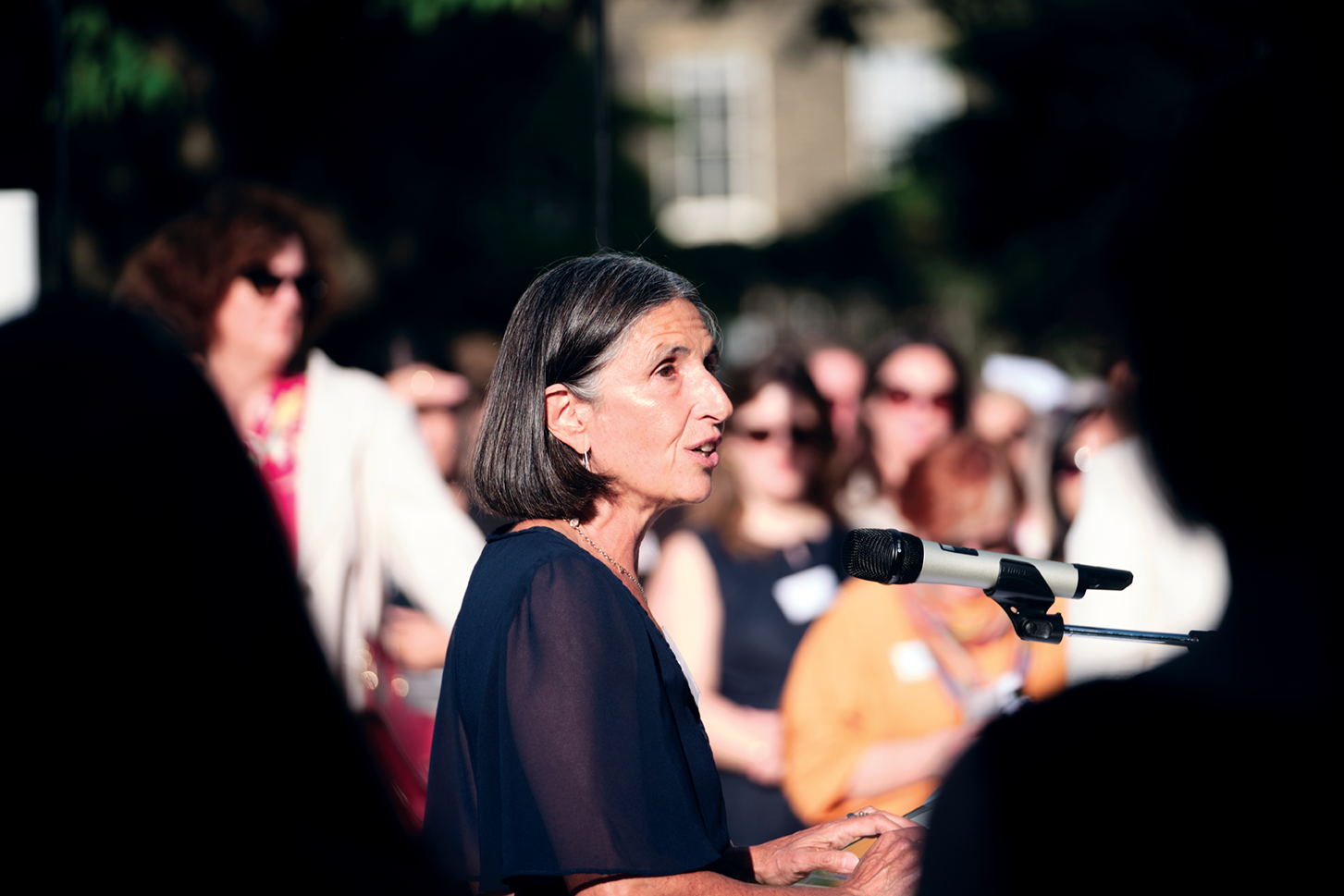
ICAW was originally established in 2011 as a collaboration between Inner and Middle Temple (then known as the Temple Women’s Forum) and in 2022, it became a collaboration between all four Inns.
The Alliance exists in recognition of the fact that there are challenges and barriers to career progression and wellbeing faced by women in the law. It seeks to provide a safe forum where issues facing women in the profession can be discussed in order to foster a culture of mutual support. It supports the Inns’ wider commitment to equality, diversity, inclusion and social mobility. ICAW takes an intersectional approach, recognising that disadvantages can also arise from being of a non-white ethnic background, being disabled or LGBTQ+ or by reason of socio-economic factors.

ICLR
If it's reportable, we report it.
Trusted law reporting since 1865
On behalf of the Committee of the Alliance, can I thank you all for coming. And special thanks also to those male allies who are here with us today.
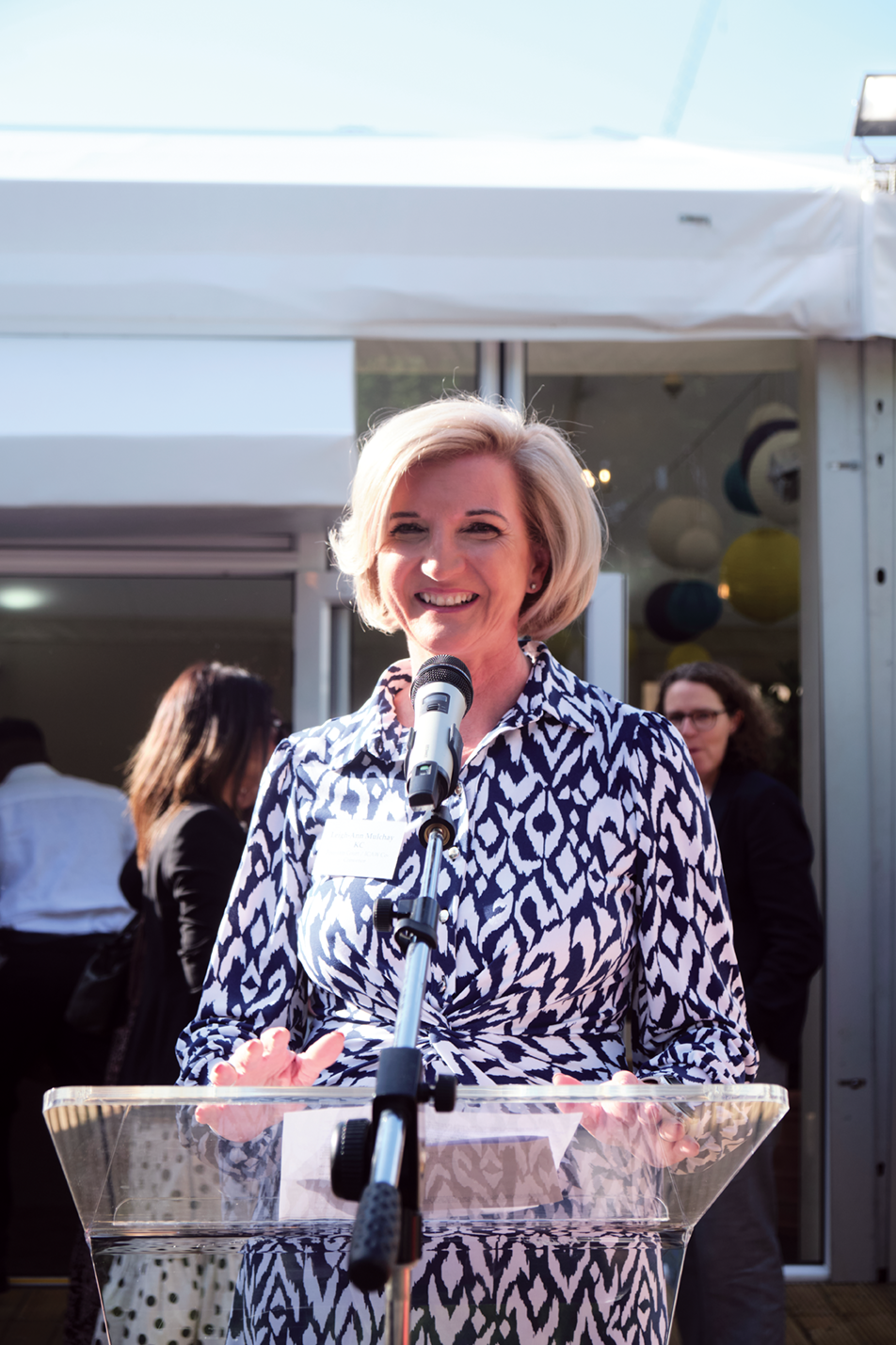
This is the 11th time we have held an annual networking party, and it continues to be one of the main diversity events of the calendar. I would like to thank the staff of the Inns who support the Alliance’s events throughout the year, and the staff at The Inner Temple for the work they have put into the arrangements to make this party so enjoyable. Whilst on the subject of diversity events, I should also mention that The Inner Temple is hosting another all-Inns event for the Bar and solicitors’ profession later this week as part of Pride month, titled ‘Pride in Practice’.
Now it is my pleasure to introduce our speaker to do the welcome this evening, Dame Ingrid Simler.
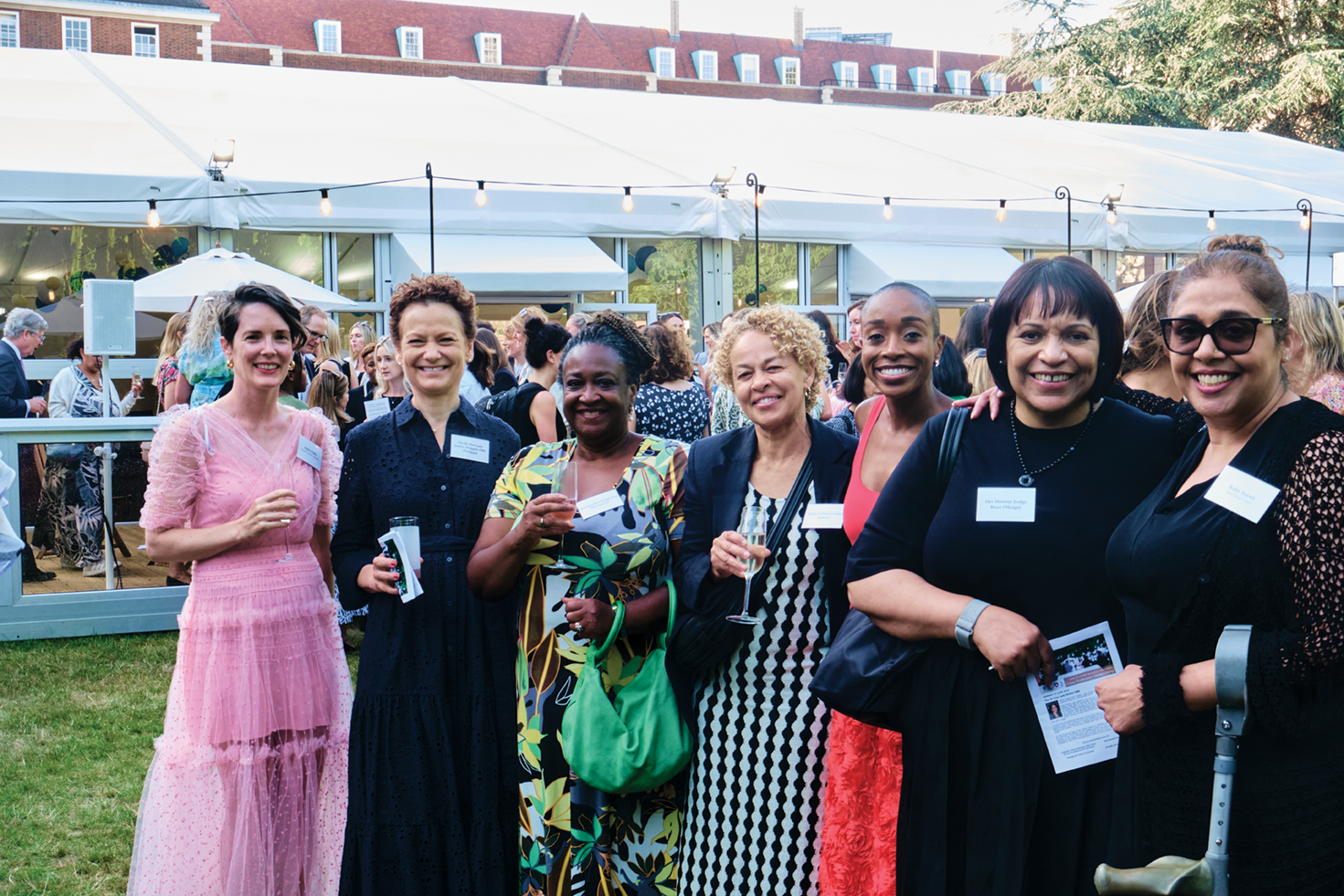
Female barrister and human rights activist Amal Clooney has said, “Success is not about the position you hold, but the positive impact you create.” In the case of Lady Simler, her success is about both. She was called to the Bar in 1987 and practised in tax and employment law. She took silk in 2006 and was Head of Devereux Chambers before becoming a judge of the then Queen’s Bench Division in 2013 and then President of the Employment Appeal Tribunal. She was appointed to the Court of Appeal in 2019 and became a Justice of the Supreme Court in 2023 (only the fifth woman to be appointed since its inception). A champion of diversity, she was High Court Liaison Judge for Diversity and then chair of the Diversity Committee of the Judges’ Council. I have personally had the privilege of being a member of The Inner Temple Equality, Diversity & Inclusivity Sub-Committee, which Lady Simler chaired for a number of years with great empathy and sensitivity.
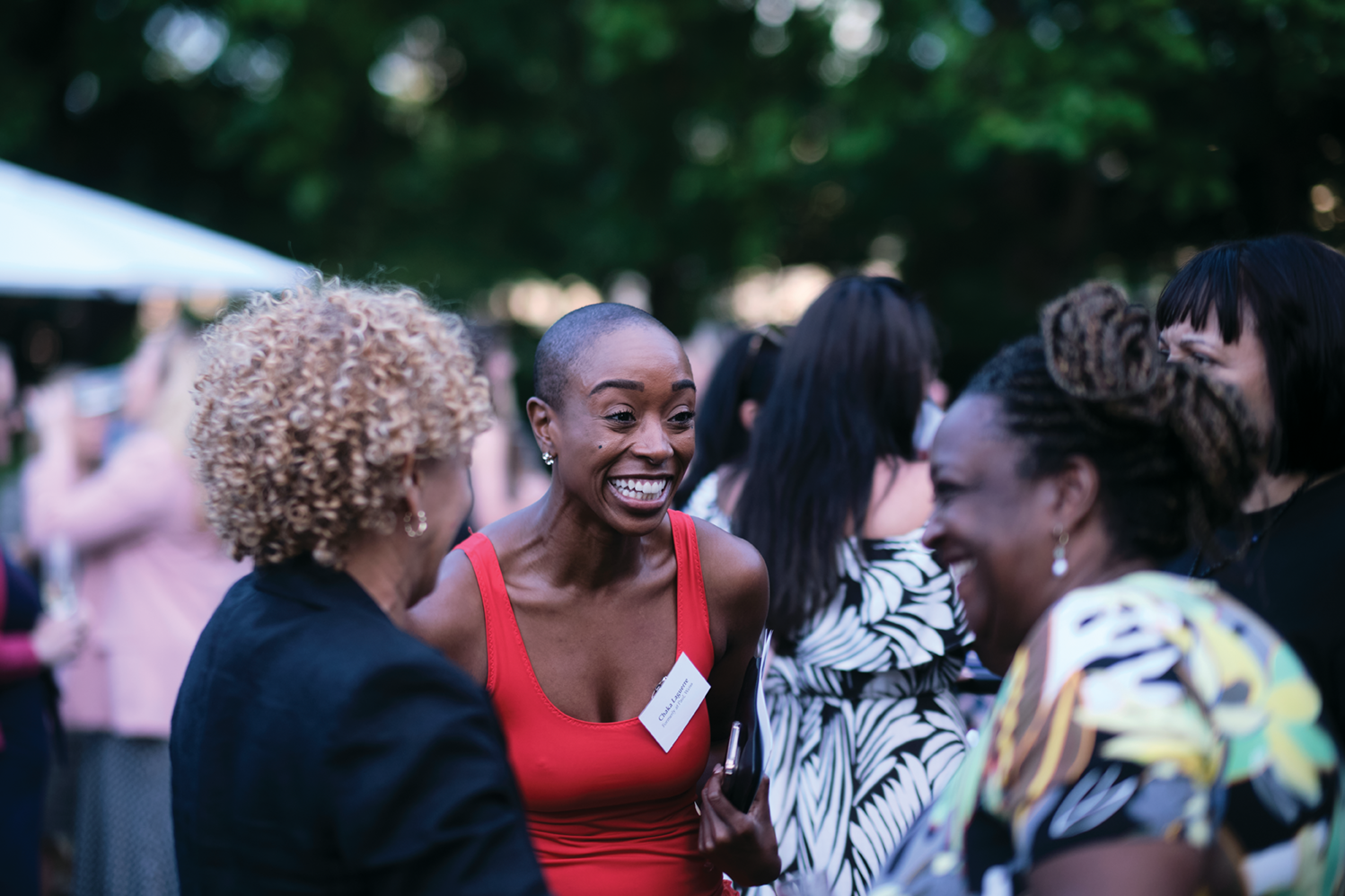
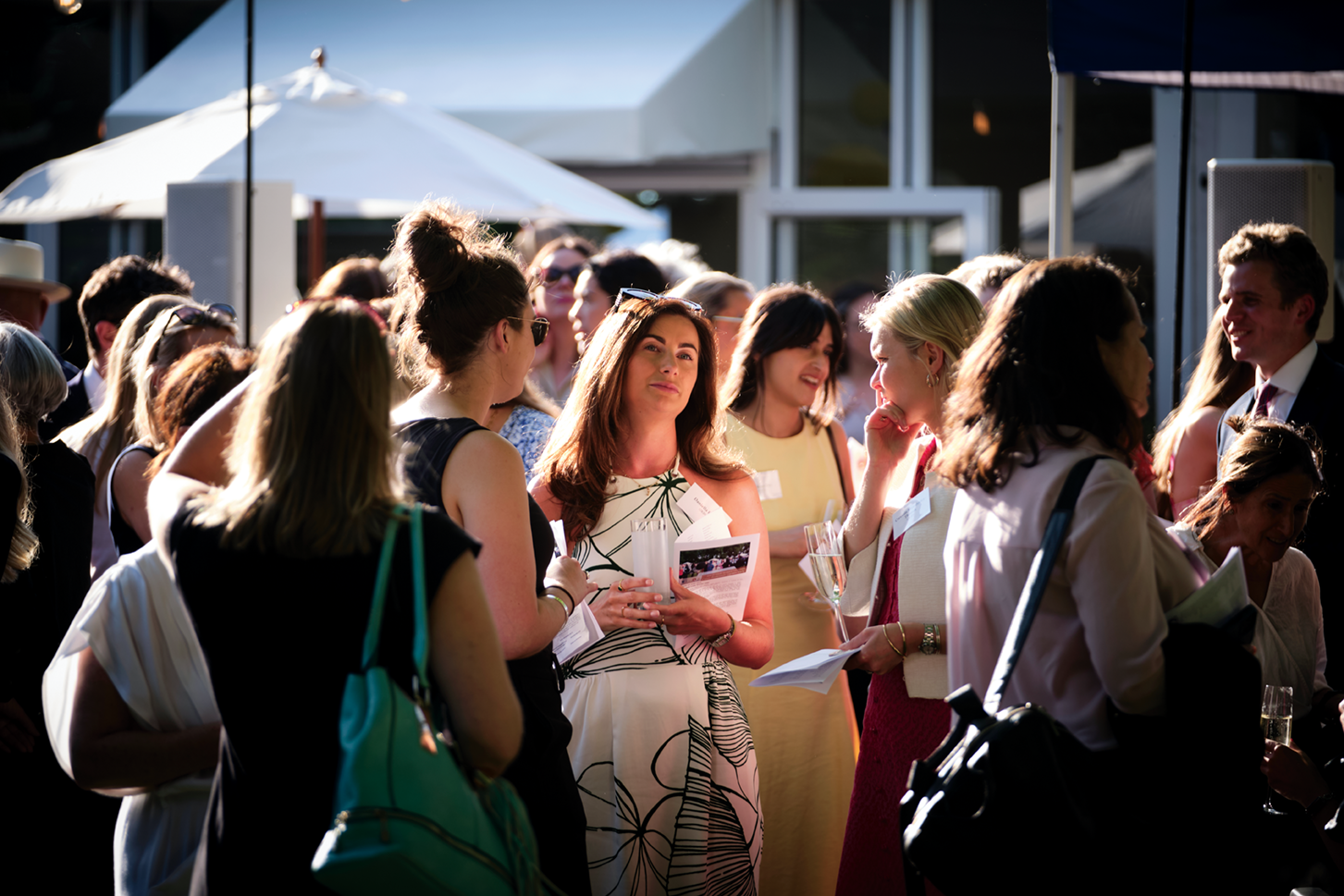
We are very grateful to her for taking time out of her incredibly busy diary to come and be our speaker.
Leigh-Ann Mulcahy KC
Inner Temple Co-Convenor
Inns of Court Alliance for Women
It is a real pleasure to be here in this wonderful garden this evening and to have been asked to say a few words to this distinguished gathering, including, as it does, so many exceptional women who now make up the backbone of the Bar and represent its future.
When I started my career at the Bar in the late 1980s, there were far fewer women barristers, still less in senior roles or silk, and even fewer on the Bench. In fact, my chambers had two women – one a quite senior silk – but that was unusual, and probably a factor in what took me to those chambers. It wasn’t always easy to see what a long-term career at the Bar might look like for me as a woman, and that lack of visibility made the path feel more uncertain.
As I progressed in seniority, balancing my career ambitions with raising a family, then taking silk in 2006, I became increasingly aware of the structural, cultural and other challenges that were holding women back. Many of these challenges are not overt. They are cumulative, often hidden in assumptions about commitment, availability or leadership potential. That awareness led me to take on roles such as Chair of the Bar Council’s Equality and Diversity Committee. It was important to me that we not only highlight these issues but also create practical solutions: flexible working models, fair recruitment practices, support systems that help people stay in the profession rather than pushing them out.
But institutional and structural change is only one part of the story.
I had the good fortune in chambers of having people who would now be seen as mentors, though that may not have been how they saw themselves back then – both men and women who offered their precious time to listen and give guidance, encouragement and, critically, belief. Sometimes that belief came at times when I wasn’t sure I had it in myself.
They had had the experience of successfully navigating different obstacles or processes – juggling the Bar and raising children, applying for an appointment of one kind or another, overcoming setbacks – and they could support me in my career.
So, for example, I was strongly encouraged to apply to be a Revenue junior and then for silk, recorder and judicial appointments. That encouragement and support were critical in giving me the confidence to apply. If they thought I could do it, maybe I should. Each time I applied for something, a member of chambers who had done it before helped me go about it and told me what to expect from the particular process. Sometimes it was just a small thing, like you will need at least a week to fill out that particular form; other times, it was a critical read-through of a draft form – though I remember one occasion when the criticism was so critical I almost didn’t apply!
And when it didn’t work out (as inevitably happened at different times in my career), they encouraged me to apply again, sharing their own interview horror story or pointing out how many times other people had had to apply for this or that competitive appointment before finally getting it, and suggesting things I could do to improve my application before the next round. Over the years, I’ve tried to do the same for others, especially for women coming through the system.
There is no doubt that mentorship is invaluable, and it’s been critical for me. But I would like to pause here and raise a question. Looking to the future, is it enough? Should we also be thinking about how and when we can also do sponsorship?
Where mentoring is usually private and supportive, sponsorship is public and proactive. A sponsor is someone who not only gives advice behind the scenes but is also willing to use their position to advocate for you in rooms you’re not in, to mention your name as someone to watch, to recommend you to solicitors or push for you to be instructed on a particular case.

ICLR
If it's reportable, we report it.
Trusted law reporting since 1865
What might sponsorship look like at the Bar?
These are just a few examples. You will have more.
Now, I recognise that sponsorship can be a challenge. To be a sponsor, you must have knowledge and experience of the sponsee’s professional ability. You may have to risk your own reputation to back the sponsee, and not everyone feels comfortable doing this. This makes the barrier to sponsorship higher, especially in under represented groups where the necessary relationships may not already exist. Of course, the risks of mentorship are lower, and it is correspondingly easier to find a mentor, not least because there are now a lot of formal schemes in place. But perhaps sponsorship can be a natural evolution of mentorship. The same person who guides you to the right room is also the person who talks about how excellent you are in that room.
Baroness Hale once said: “Equality is not a women’s issue. It’s a justice issue.”
Her words are a reminder that this is not about favour, it’s about fairness and recognising that the legal profession belongs to all who are capable of being in it.
So, to all of you here tonight, whether you’re in your early years of practice or well into silk, let’s think seriously about how and who gets seen in court, who gets backed, and who gets talked about. If we want a legal profession that truly reflects the society it serves, we must be intentional about both mentoring and sponsoring those whose potential has not always been given the chance to flourish. The pipeline doesn’t fix itself. We fix it by reaching back as we move forward.
When I joined the Supreme Court, it was, of course, a moment of deep personal honour. But more than that, I hoped it would stand as another signal to women at the Bar: you do belong at the highest level, and we need you there.
Tonight is a fantastic opportunity to make new connections, ask each other questions, share experiences and offer support. There is such power in the community that makes up the Inns of Court Alliance for Women. Welcome to you all, and let’s begin!
The Rt Hon Lady Simler DBE
